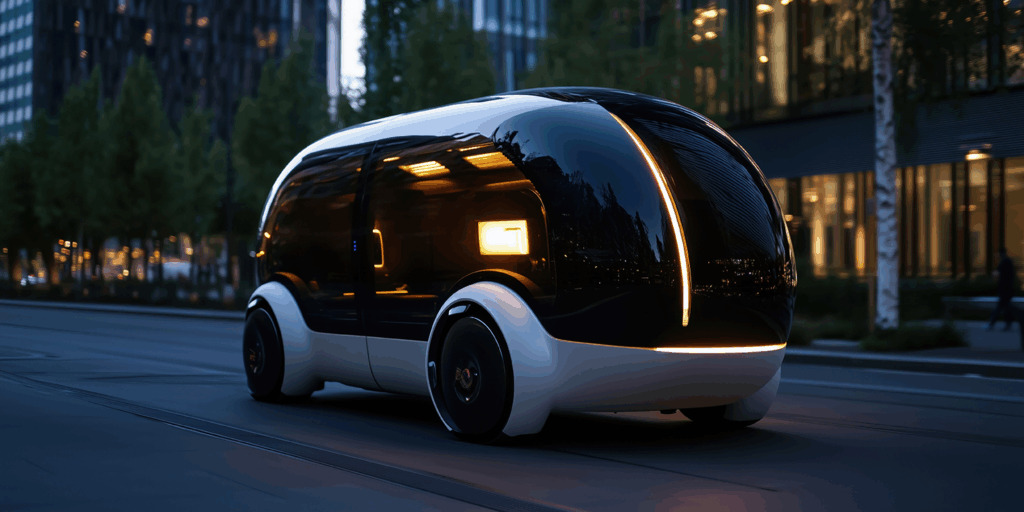Londoners, hold onto your hats. Uber has announced it’s gearing up to trial autonomous taxis on the capital’s streets starting next spring. Yes, that’s right: driverless cars could soon become part of your everyday commute. But how ready is London? Let’s dive into what’s planned, potential implications, and whether we’re prepared for this tech-driven leap.
What’s the Deal with Uber’s Driverless Cars?
Uber’s autonomous taxis in London will be driven using Wayve AI self-driving technology. Wayve has already been quietly testing these smart cars around London (albeit with human oversight), but now, thanks to the new UK AV legislation, Uber is officially stepping into the ring.
For now, each vehicle will still carry a “safety driver,” someone ready to intervene if the AI goes a bit rogue. Full autonomy isn’t yet allowed under current rules. Still, Uber hopes to offer these driverless rides through its regular app when the government gives the green light.
Uber are really spreading their eggs when it comes to AI partnerships. They are allied with various leading firms to deploy autonomous vehicle (AV) technology across the globe. As well as Wayve, Uber are in partnership with Waymo in Austin, Texas where their AV’s have been making significant inroads into the taxi market. Baidu’s Apollo Go robotaxis will also be available soon to book in the Uber app in Asia and the Middle East. An additional announcement in June revealed a collaboration with Pony.AI to bring about large scale commercialisation of robotaxis.
Navigating London Autonomous Taxi Safety Regulations
Safety is at the heart of discussions around AVs, particularly after some worrying incidents across the pond. Tesla’s recent robotaxi launch in Austin, Texas, led to safety scares, from unexpected braking to near-collisions with trucks and even a dummy child in a safety test. Yet, Waymo has posted some impressive safety stats that out perform the traditional taxi market in the region.
Transport for London (TfL) insists that the introduction of autonomous vehicles must align with the city’s Vision Zero initiative, which aims to eliminate road deaths and serious injuries. Christina Calderato, TfL’s director of transport strategy and policy, pointed out that autonomous services might not fit neatly into existing taxi or private-hire regulations, potentially requiring a new, dedicated regulatory framework.
Uber says it’s committed to ensuring the safety of all road users, but TfL has made it clear that rigorous new safety regulations must accompany the technology’s rollout. London may well be a more challenging environment to prove the merits of the tech compared to other locations. However, an investment presents potentially substantial returns given the fact it is a major revenue centre for the American giant. Additionally, if they can prove the capabilities of robotaxis amongst the narrow streets of the UK’s congested capital amid its changeable climate, they can demonstrate them in virtually any other city, regardless of current social or legislative concerns.
If your business services, repairs or modifies vehicles then Plan Insurance Brokers can source a tailored Motor Trade insurance policy for you. If you have any more questions or would like a quote call our expert team, request a call back or fill in our new quick quote form.
Job Impact of Autonomous Taxis: What About Drivers?
It’s no secret that technological advances often have significant social impacts, and autonomous taxis are no exception. According to the Department for Transport, the AV industry could create 38,000 new jobs and inject £42 billion into the UK economy by 2035. Sounds great, right?
However, the GMB union and taxi industry representatives warn there’s another side to the coin. London’s 400,000 taxi and private-hire drivers face an uncertain future as automation takes hold. Andy Prendergast, GMB national secretary, warned of “significant social implications” for employment. Transitioning these workers into new jobs is crucial, and the government says it’s actively considering it.
Are Autonomous Taxis Cheaper for Passengers?
You might imagine driverless vehicles would lead to cheaper fares, but evidence from San Francisco suggests otherwise. Data from Obi showed that autonomous services like Waymo typically cost significantly more than traditional rides with Uber or Lyft, especially during peak hours. If cost isn’t decreasing, will convenience and novelty alone convince Londoners?
Ready or Not, Autonomous Taxis Are Coming
Uber’s autonomous taxi trial in London is an exciting glimpse into the future but one with plenty of bumps in the road. From stringent London autonomous taxi safety regulations to the very real job impact, this new technology presents opportunities and challenges alike.
One thing’s certain: London’s transport landscape is about to change dramatically. Buckle up; the ride is just beginning.
Find out why 96% of our customers have rated us 4 stars or higher, by reading our reviews on Feefo.


